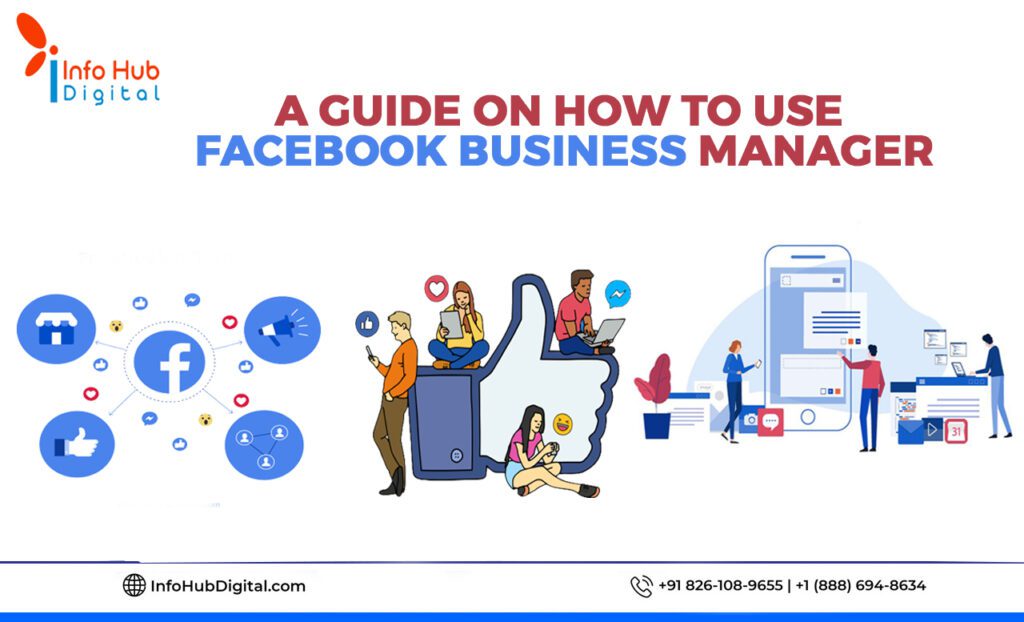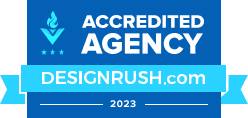A technically sound website is paramount in the rapidly shifting world of digital marketing. Ensuring your website is technically optimized can significantly enhance its performance, boost search engine rankings, and provide a seamless user experience. By focusing on various technical SEO aspects, you can create a robust online presence that meets both search engine criteria and user expectations. This comprehensive guide will walk you through the best technical SEO tips to keep your website running smoothly and efficiently, helping you stay ahead in the competitive digital landscape.
Table of Contents
Enhancing Page Speed: The Backbone of User Experience
Optimize Images for Lightning-Fast Load Times
One of the most significant ways to enhance your website’s speed is by optimizing images. Large, uncompressed images can dramatically slow down your site, leading to a poor user experience and increased bounce rates. Utilize tools like TinyPNG or ImageOptim to compress your images without compromising quality. Additionally, implement responsive images using the srcset attribute to serve different image sizes based on the user’s device, ensuring your site loads quickly across all platforms.
Leverage Browser Caching for Repeat Visitors
Browser caching stores some of your website’s files on the user’s device, reducing load times for subsequent visits. By setting expiration dates on your cache, you can ensure that returning visitors experience faster load times. This is achieved by adding cache-control headers to your website. Properly configured caching can make a significant difference, especially for users with slower internet connections or those accessing your site from remote locations.
Minimize CSS, JavaScript, and HTML for Efficiency
Reducing the size of your website’s files can make a significant difference in load times. Minification removes unnecessary characters from your code without affecting its functionality. Tools like UglifyJS for JavaScript, CSSNano for CSS, and HTMLMinifier for HTML can streamline your code, making your website faster. Additionally, consider inlining critical CSS to ensure that above-the-fold content loads quickly, enhancing the initial user experience.
Enable Compression to Boost Speed
Enabling compression using tools like Gzip can reduce the size of your HTML, CSS, and JavaScript files by up to 70%. This is done by compressing your files into smaller sizes before they are sent over the network, thus speeding up the loading process. Compression is particularly effective for users on mobile devices or slow connections, as it reduces the amount of data that needs to be transferred, resulting in faster load times.
Mobile Optimization: Catering to On-the-Go Users
Ensure a Mobile-Friendly Design
With the majority of users accessing websites from mobile devices, it’s imperative that your website is mobile-friendly. Employ responsive design techniques to ensure your website adjusts seamlessly to various screen sizes. Use Google’s Mobile-Friendly Test to verify your site’s mobile compatibility. A mobile-friendly design not only improves user experience but also boosts your rankings, as search engines prioritize mobile-optimized sites in their algorithms.
Accelerated Mobile Pages (AMP) for Instant Loading
AMP is an open-source initiative designed to optimize web pages for mobile browsing by stripping down the page to its essentials. Implementing AMP can significantly enhance mobile performance, improving both speed and user experience. AMP pages are pre-rendered in search engine results, allowing for near-instant loading when clicked. This can lead to higher engagement rates and improved mobile search rankings.
Secure Your Website with HTTPS
Implement SSL Certificates for Security
Security is a ranking factor in Google’s algorithm. By securing your website with an SSL certificate, you not only protect your users’ data but also enhance your website’s credibility. Transition from HTTP to HTTPS to improve your search engine ranking and build trust with your audience. An SSL certificate encrypts the data exchanged between your website and its visitors, preventing unauthorized access and ensuring that sensitive information remains confidential.
Fix Broken Links: Ensure Seamless Navigation
Regularly Check for Broken Links
Broken links can frustrate users and hinder search engine crawlers. Regularly audit your website using tools like Screaming Frog or Google Search Console to identify and fix broken links. This ensures a seamless user experience and improves your website’s crawlability. Broken links can lead to 404 errors, which not only disrupt the user journey but also negatively impact your SEO efforts. By promptly addressing broken links, you can maintain a well-structured and user-friendly website.
Improve Site Architecture: Streamline Your Content
Create a Logical Site Structure
A clear and logical site structure is essential for both users and search engines. Organize your content into categories and subcategories, ensuring that every page is accessible within a few clicks from the homepage. Use breadcrumb navigation to provide users with a clear path back to previous pages. A well-organized site structure helps search engines understand the hierarchy of your content, making it easier to index and rank your pages appropriately.
Utilize Internal Linking for Better Navigation
Internal links connect your content and provide a clear path for search engines to follow. They also help distribute page authority throughout your site, improving the ranking potential of key pages. Ensure that each page has relevant internal links to guide users and search engines alike. Effective internal linking not only enhances the user experience by guiding visitors to related content but also helps search engines discover and index new pages more efficiently.
XML Sitemap: Guiding Search Engines
Create and Submit an XML Sitemap
An XML sitemap is a roadmap of your website that helps search engines find and index your content. Create a comprehensive XML sitemap and submit it to search engines like Google and Bing. Ensure that your sitemap is regularly updated to reflect changes to your site. A well-maintained sitemap ensures that search engines are aware of all your pages, including those that might not be easily discoverable through normal crawling.
Robots.txt File: Directing Search Engines
Properly Configure Your Robots.txt File
Your robots.txt file instructs search engines on which pages to crawl and index. Ensure that your robots.txt file is properly configured to allow search engines to access your essential content while blocking pages you don’t want indexed, such as admin and login pages. Proper configuration of your robots.txt file can prevent search engines from wasting crawl budget on low-priority pages, ensuring that your important content is indexed efficiently.
Canonical Tags: Preventing Duplicate Content
Implement Canonical Tags
Duplicate content can dilute your ranking potential. Use canonical tags to specify the preferred version of a web page. This tells search engines which version to index, preventing duplicate content issues and consolidating ranking signals. Implementing canonical tags correctly ensures that search engines recognize the primary source of your content, preserving its ranking power and avoiding potential penalties for duplication.
Structured Data: Enhancing Search Visibility
Use Schema Markup
Structured data, or schema markup, helps search engines understand your content and enhances your search visibility with rich snippets. Implement schema markup using Schema.org guidelines to improve your search results. Use Google’s Structured Data Testing Tool to validate your markup. Rich snippets can significantly enhance your search listings, making them more attractive to users and increasing click-through rates.
Monitor and Fix Crawl Errors: Ensuring Accessibility
Regularly Check Google Search Console
Google Search Console provides valuable insights into your website’s performance, including crawl errors. Regularly monitor your account for any crawl errors and fix them promptly to ensure search engines can access all your content. Addressing crawl errors ensures that your site remains accessible to search engines, improving its overall indexation and ranking potential.
Optimize URL Structure: Clean and Descriptive URLs
Use Clean URLs
A clean URL structure is not only user-friendly but also search engine-friendly. Use descriptive URLs that include relevant keywords. Avoid using special characters, long strings of numbers, or excessive parameters. Keep URLs concise and meaningful. Clean URLs are easier for users to remember and for search engines to index, improving both user experience and search visibility.
Content Delivery Network (CDN): Speed Up Content Delivery
Implement a CDN
A CDN distributes your website’s content across multiple servers worldwide, reducing server load and speeding up delivery. By using a CDN, you can ensure that your site loads quickly for users regardless of their geographic location, improving overall performance and user experience. CDNs are particularly beneficial for websites with a global audience, as they ensure fast load times regardless of the user’s location.
Regular Audits: Staying Ahead of Issues
Conduct Comprehensive SEO Audits
Regular technical SEO audits are essential for identifying and resolving issues before they impact your site’s performance. Use tools like SEMrush, Ahrefs, or Moz for thorough audits. These tools provide insights into your site’s health, helping you maintain optimal performance. Regular audits allow you to stay ahead of potential problems, ensuring that your website remains in top shape and continues to perform well in search rankings.
Conclusion: Partner with the Best
Implementing these technical SEO tips can significantly enhance your website’s performance, ensuring a smooth and efficient user experience. These optimizations not only improve your site’s loading speed and mobile compatibility but also ensure robust security and seamless navigation. By regularly monitoring and updating your site’s technical aspects, you can maintain its health and stay ahead of potential issues, ultimately providing a better experience for your users and improving your search engine rankings.
At Info Hub Digital, we specialize in providing end-to-end digital marketing services in India and the US. Our expertise as the best search engine marketing service provider in India and the US can help your business thrive in the competitive digital landscape. Whether you need technical SEO optimization, comprehensive audits, or advanced strategies to boost your online presence, Info Hub Digital is here to support you. Partner with us to elevate your digital marketing efforts and achieve outstanding results. By leveraging our extensive experience and cutting-edge techniques, we can help you navigate the complexities of digital marketing, ensuring your business stands out and succeeds online.







